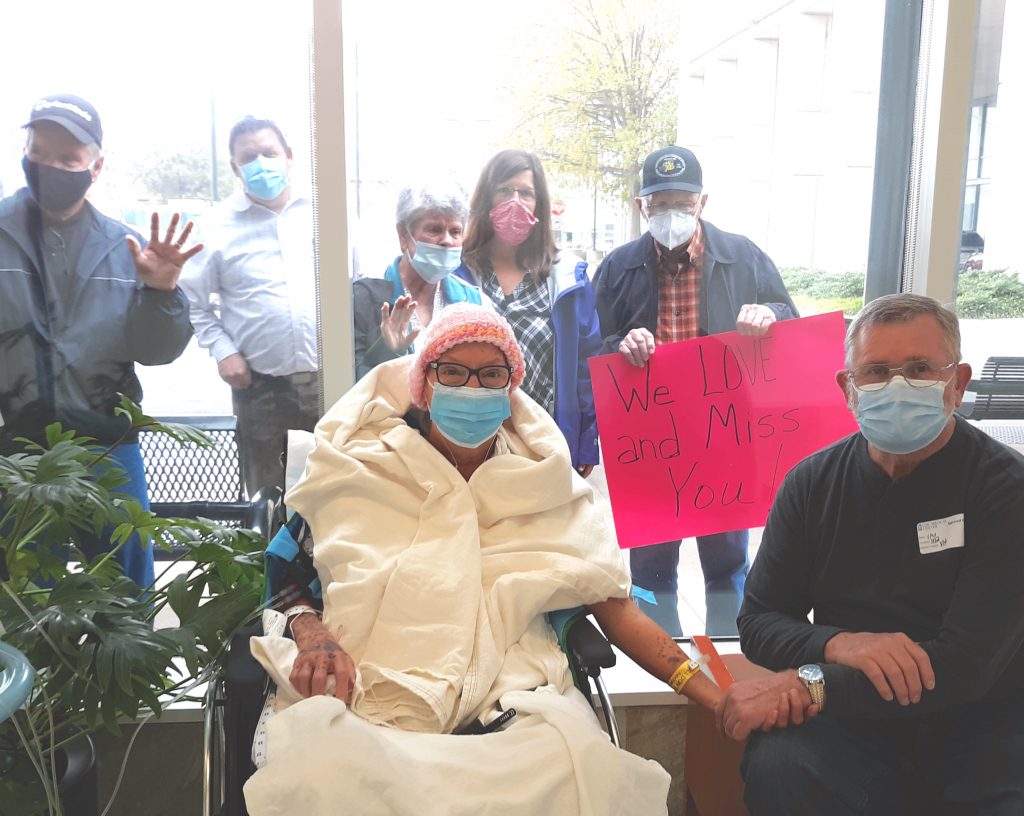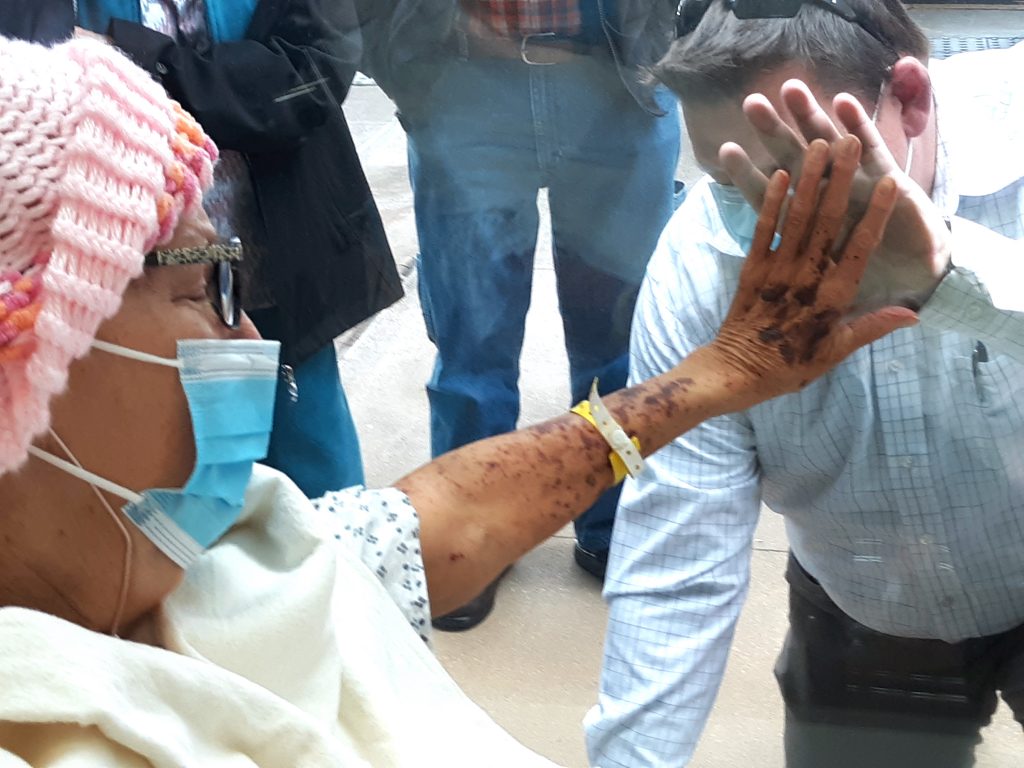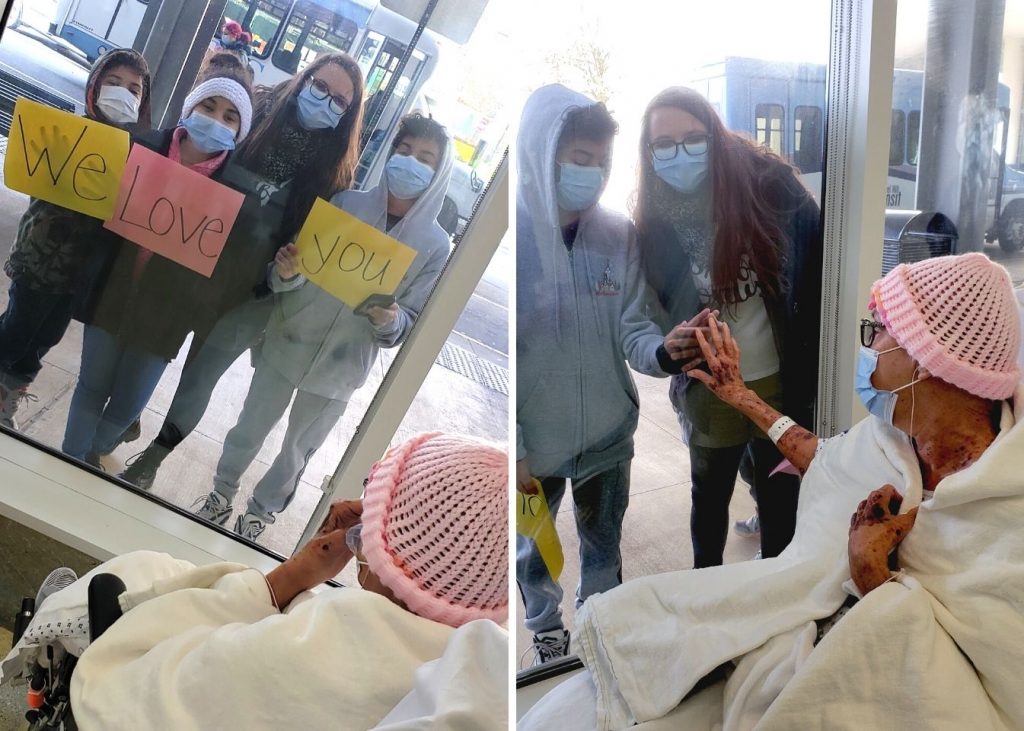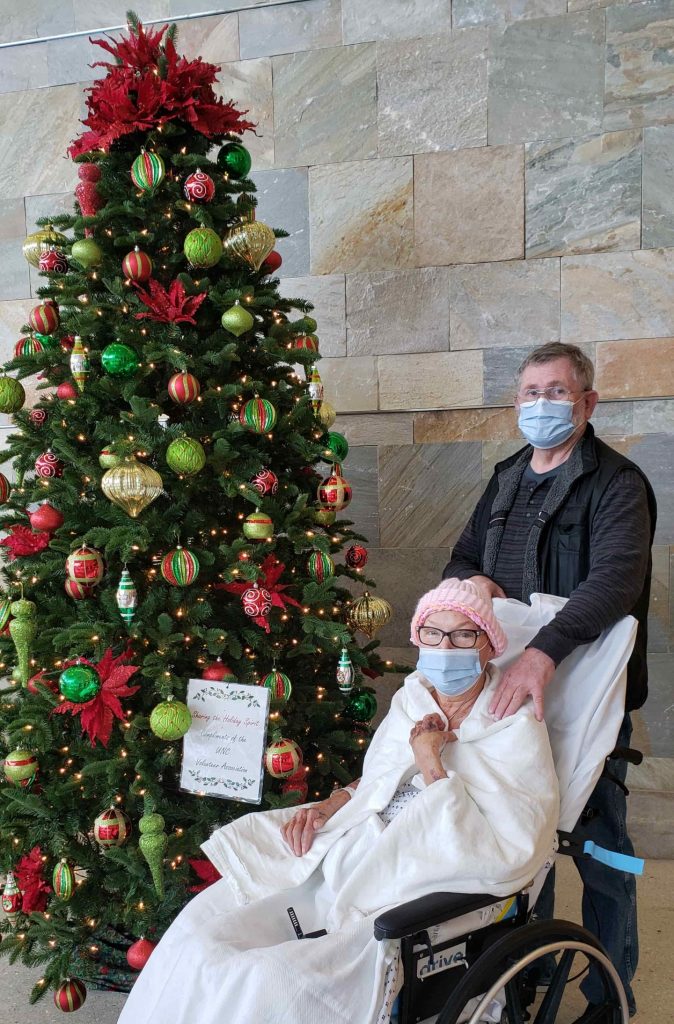
Vickie Hill of Graham, North Carolina, who is an inpatient in the North Carolina Cancer Hospital’s bone marrow transplant unit, received a nice surprise Wednesday — a socially distanced visit with her family.
Hill, 68, received a bone marrow transplant in July to treat myelofibrosis, a rare cancer of the bone marrow, and has been in isolation as a patient in the bone marrow transplant unit or the medical intensive care unit for nearly six months. Her husband, Terry, has stayed with her, but family and friends could not visit due to COVID-19 safety precautions and her high risk factors.

All those days spent in extended isolation took a toll on Hill. She especially missed attending church services and interacting with her church family. To help address the loneliness Hill has experienced, her husband, Terry, worked with Kelly Kivette, LRT/CTRS, a senior recreational therapist at the N.C. Cancer Hospital, the clinical home of UNC Lineberger, and the bone marrow transplant unit team, to arrange a visit with her family.
A few weeks ago, her husband and Kivette planned a way to safely move Hill in a wheelchair to the hospital lobby. Waiting for Hill on the exterior side of the lobby windows were some familiar faces — her family and friends, including her church pastor, with signs, smiles and enthusiastic waves.

“Mrs. Hill was tearful and overcome with joy and so very grateful for the opportunity to see her family,” Kivette said. “She acknowledged how motivating it was for her, so we set new goals for her to work toward and coordinated another opportunity for her to get into a wheelchair and get outside again.”
Wednesday’s visit was with Hill’s great niece and her family.

On her way back to the bone marrow transplant unit, Hill enjoyed looking at the Christmas decorations in the medical center.
“Mrs. Hill loves Christmas, so following the socially distanced visit with her family, I was able to take her through the lobbies to show her the three decorated Christmas trees,” Kivette said. “It is really important for our patients’ overall recovery process to have opportunities for connectivity and socialization, especially when they are in the hospital for such extended periods of time and are restricted from having visitors.”
